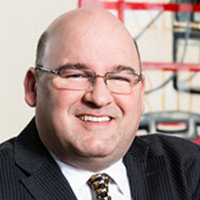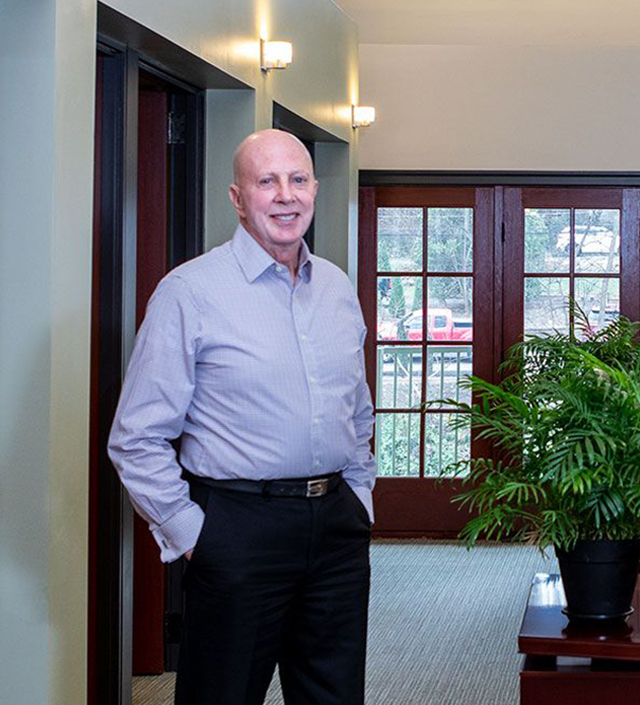
I still remember my first day of work, September 21, 1992. I was 22 years old, fresh out of Boston University, and had a few job offers.
I had always known that I wanted to go into finance. Sitting in the backseat of my parent’s car, while driving to my grandparents in Brooklyn, I’d look up stocks for my dad in the New York Times. I was set to take a position as a “rookie” at Merrill Lynch when I received some sage advice: “Sell bonds and fixed income instead of stocks.” I had no idea what bonds even were. I was told that most bond investors were usually high net worth individuals who were more interested in preserving their principal and receiving a steady income.
So on that first day at work, instead of heading to Merrill Lynch, I started at a regional municipal bond firm called Halpert and Company. I read, I learned, I cold-called, and I was taught about the world of municipal bonds. In 1996, I had the opportunity to become a partner in a new brokerage firm, and am now one of the six founding partners of The Jeffrey Matthews Financial Group in Florham Park, New Jersey.
Almost 30 years later, I still do business with my first account. Well, to be honest, I do business with the children of my first account. Whenever we talk, I always reminisce about their parents and my first trade in the muni bond business — $10,000 insured New Jersey Healthcare bonds yielding 6% and priced at $100.
The clients of my first account, Jim and Mary, were in their 60s and had worked their entire lives saving for their nest egg. Preservation of capital and a steady income flow were most important to them. It struck a chord with me. Insured bonds are similar to wearing a pair of pants with a belt and suspenders. If the bonds fail to pay, the insurance covers the principal and interest. If your belt breaks, have no fear: the suspenders will keep your pants from falling. In general, bonds pay semi-annual interest, which provides a dependable income stream. The interest is free from both federal and state taxes. For Jim and Mary, their $10,000 investment would provide $600 a year in tax-free interest for the next 20 years. I was off and running.
Throughout my career, I’ve taken great pride in my relationship with my clients. I am providing a service to my clients. Unlike stocks, it is very hard to go online and just click and buy bonds. Most clients prefer the individualized attention that I provide. Personally, it is very satisfying knowing that I am playing a role in their financial future. My older clients who are now retired depend on the income from the bonds we buy. Some tell me that the interest covers their mortgage or monthly bills. Others just call me every month to say thank you when they receive their bond income.
Over the years, many of the conversations I’ve had with clients have not centered on investing. We talk about our families, our kids, and other life experiences. I always smile when my clients talk so proudly about their kids and grandkids, as I can hear their pride through their voices. While listening, I usually jot down a few notes about their family dynamics so that I can learn more about each family.
Unfortunately, over the years, I have had clients who have passed away. I am usually one of the first phone calls that the children make after their parents die. “Hi Geoff, this is Jimmy, my mom Clara had an account with you and she passed away last week. What do I need to do?”
I can always tell too. The voices are full of nervous energy and emotion, and it is my job to alleviate any fear of the unknown as the kids now manage their parents’ affairs. Usually, this is the first time that I get a chance to speak with the children of my customers.
When I get that call, I always make it a point to first talk about their parents. I go through my history and how we first started doing business — whether it was a referral or the more likely cold call. I try to put the children’s’ fears and concerns at ease. Unlike equity accounts, where there may be wild fluctuations and volatility, the fixed income accounts are more stable. I explain that there is nothing pressing that has to get done right away. I can actually hear the sighs of relief when I say that. We send out the new paperwork and once we get back all the necessary documentation, the conversations become more detailed.
There is usually one child who is in charge of the estate and made executor. The responsibility of managing and gathering all of these new-found accounts is overwhelming. The added pressure from the siblings also adds to the angst of the child who has been put in charge to manage their parents’ affairs. I have to manage their expectations on the time it takes to get the paperwork together and fill out new forms, and I also need to explain that the siblings should be patient too. Once the new accounts are opened, the conversation takes a different role.
Most of the time, I do not know how accounts are being split. I always assume that they’ll be split evenly between each of the kids. Of course, I await instructions from the executor how to proceed. I reach out to beneficiaries individually to see what their needs are. Some take the securities, some take the cash, others have no idea what to do. Together, though, we talk things through.
Sometimes though, things are not as simple. In-fighting between siblings, longtime disagreements where parents leave more to one child than the other, kids just being left out of the will — these are all examples of past experiences that I have dealt with. It is my job to calm the nerves, “let cooler heads prevail,” and make sure that each beneficiary gets what he or she is entitled to.
I truly believe that the parents would be happy that I connect with their children and help preserve their legacy. Every family has its own dynamic so it is important that we follow the will and other estate documents. Personally, it is very satisfying helping the family legacy continue through the beneficiaries and I always express this to them. A majority of the time, the children become clients of mine and together we continue to work together to meet their financial goals.
When you are in the same line of business for almost 30 years and have been fortunate to have a good relationship with your clients, the business relationship changes from strictly business to a more friendly and fulfilling relationship. My clients know that I will go the extra distance for them, I answer their emails and calls on the weekend. If something is bothering my client on a weekend, why should they have to wait until Monday for an answer? Send me an email, I tell them, and I will try to respond quickly and thoroughly.
Looking back, it is funny that those long-term 30-year bonds that I sold in 1992 are first coming due next year. Time certainly does fly by. I still remember that first day 30 years ago, and I look forward to what the next 30 will have in store of my clients and for me as well.
Geoff Feinstein is one of the founding partners at The Jeffrey Matthews Financial Group, LLC in Florham Park, N.J. He has more than 25 years experience as a financial broker, he regularly volunteers in the community and he is currently the president of the Jewish Community Center in Bridgewater, N.J. Geoff can be reached at gfeinstein@jeffreymatthews.com.







